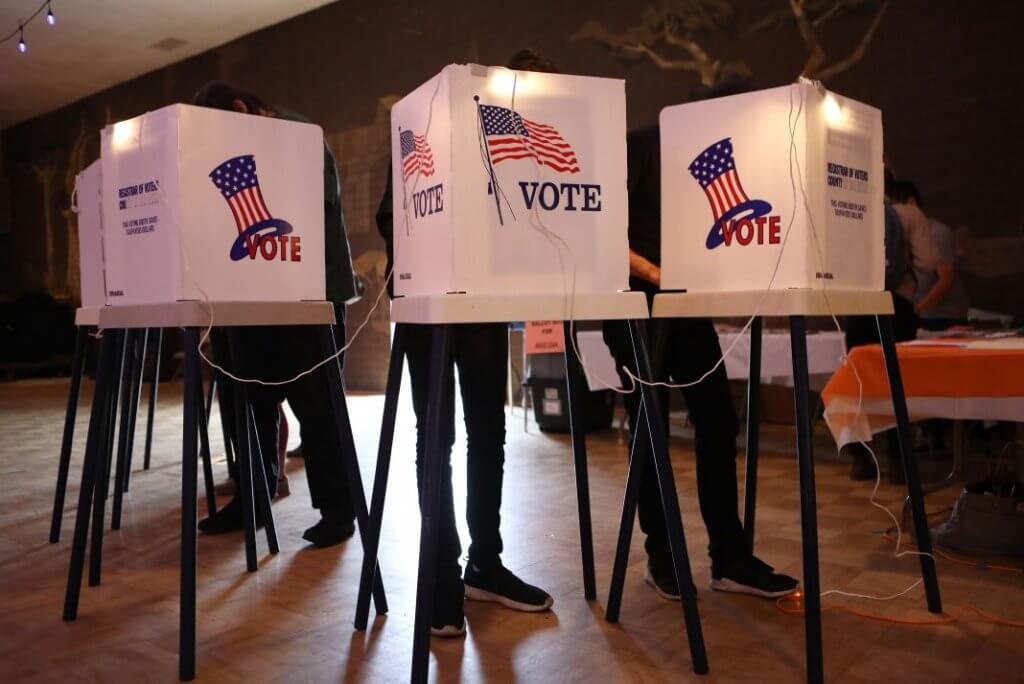
December 18, 2023
Your Choice, Your Democracy
by Senator Jeff Smith
Under the current lay of the land, the political parties are in control – that means the most important part of the U.S. Senate and House of Representative elections occurs during the primary election.
Senators and representatives run further to the right or left to appease their base electorate to get out of the primary as the winner rather than what might be best for the general public. Elections are too important to have a partisan primary voting system that forces voters to choose only between two candidates for the general election.
Final five voting offers voters choices and it will force candidates and your elected officials to be more responsive to you. I’ve introduced this bipartisan bill (2023 Senate Bill 528) with Senator Jesse James (R-Altoona), Representative Daniel Riemer (D-Milwaukee) and Representative Ron Tusler (R-Harrison).
This is how it works:
1. All candidates who fulfill the expectations to run for office are listed together on the same ballot in the primary, regardless of party affiliation. The five candidates who receive the most votes will advance to the general election.
2. On the general election ballot, voters will rank their choices of the final five. A voter’s top choice would be number one, then he or she may select a 2nd choice, 3rd choice, 4th choice and 5th choice. After all the votes are cast, an instant runoff occurs. It will eliminate the lowest performing candidates and automatically transfer the voter’s vote to next highest ranked candidate until only two candidates remain. The candidate with the most votes between the two remaining candidates wins.
Some politicians fear changes such as rank choice voting. Answering to voters is oftentimes their main concern. Just last week, legislators circulated a constitutional amendment to ban ranked choice voting from becoming an option in Wisconsin.
Opponents claim rank choice voting can be complicated and clumsy. For instance, without the open primary like we used in SB 528, there might be 35 candidates on the ballot which voters would need to rank. Yes, simply using rank choice voting without the primary to whittle it down to 5 candidates would be messy like it has been in some locales. The key is the open primary where the voter only votes for one candidate of their choice to advance to the general election.
The La Crosse Tribune recently wrote an editorial supporting final five voting. Their sentiment hit the nail on the head when they wrote, “The problem is that the voters are losing. Solution-based legislation is losing. Good governance is losing. Democracy is losing. Who is winning? Special-interest groups that fund the extremes and count on the gridlock of status quo to paralyze responsible governance.”
Under final five voting, candidates for federal office must be more responsive to the voters from the start. As lawmakers in Washington they must listen to the public. They must spend less time and resources bashing other candidates or their ideas because they may need that 2nd or 3rd choice from supporters of their rival. A more civil and constructive campaign happens. Radical agendas lose and civil candidates can win.
While voters get more civil engagement, ordinary citizens may also feel more compelled to run for office. Voters may see more idea sharing in campaigns and, once elected, your elected officials should be more willing to work with everyone across all political stripes. They will become less interested in their political party and special interests and more interested in you. The voters become the winners under final five voting.
As Republican U.S. Representative Mike Gallagher of Wisconsin’s 8th District said, “At a time of intense partisanship, we’re in dire need of solutions. This idea is not just a good place to start, but a way for our state to revitalize its rich history in political innovation.”
Something must change, but nothing changes if we don’t try


